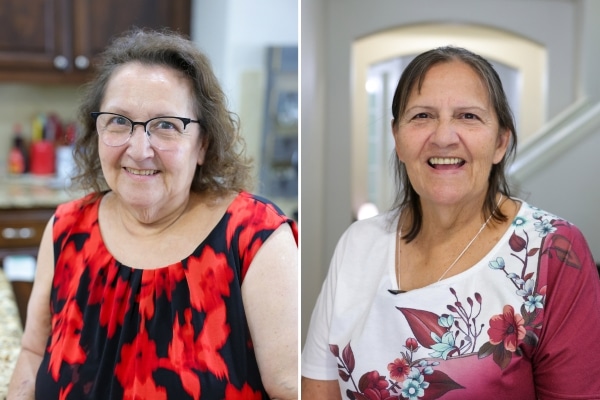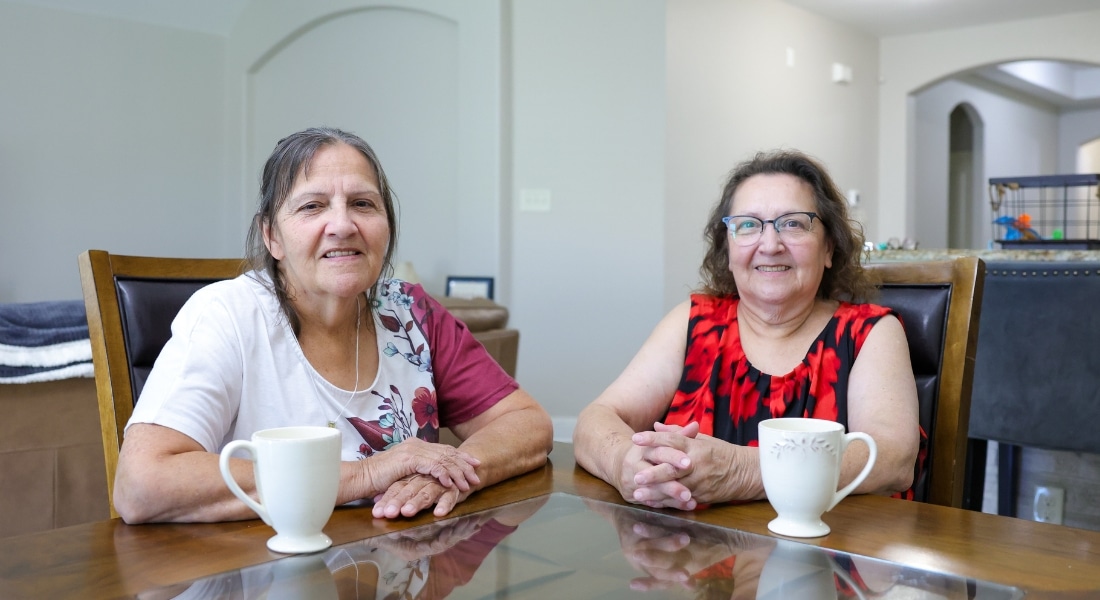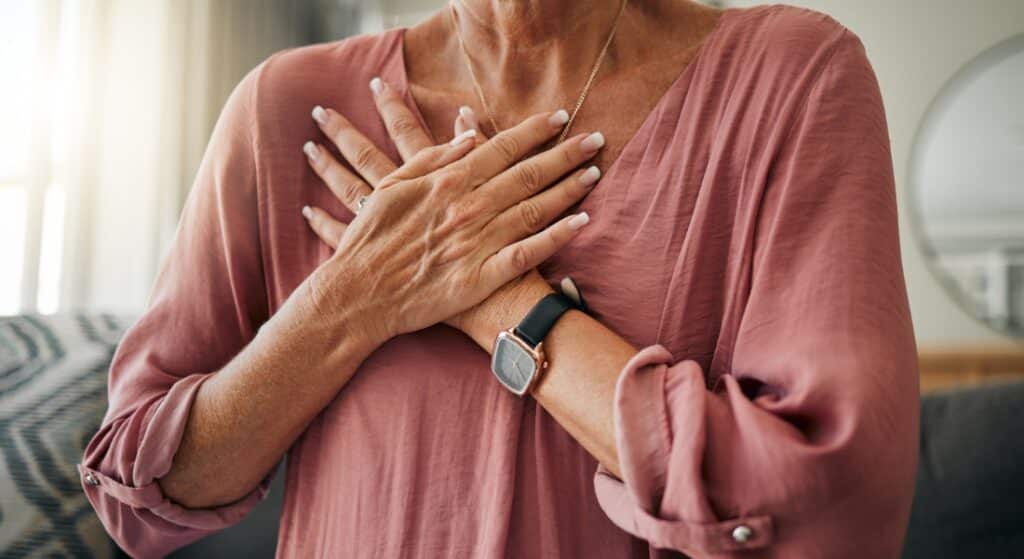Like many sisters, Mary Stierhoff and Carmen Alfaro do everything together, so when it came time to care for their ailing hearts, bypass surgery was just another challenge to face as a team.
“This wasn’t my first surgery,” says Mary, who is 68 and had a heart attack in 2020, “but I knew I needed to be strong for Carmen.”
Heart disease runs deep in their family: Their father and brother both suffered heart attacks, and Mary had two stents placed in her arteries after her own heart attack.
Even so, Carmen, the older sister at 71, was shocked to learn that she had a 70% blockage in one of her arteries, the same as Mary’s.
“I had no symptoms, no pain or anything,” Carmen says, before Mary chimes in with their worst fear: “It could have been a silent killer.”
But both sisters got the lifesaving care they needed, thanks to their team at Methodist Health System and a timely heart health forum they attended as part of Methodist Generations, an education and enrichment program for older adults.
“Attending that one class made all the difference,” Mary says. “We’re so thankful for the Methodist Generations program and their goal to educate all of us in the community.”
FAMILIAR SYMPTOMS
That February 2024 information session at Methodist Charlton Medical Center was the sisters’ introduction to their new doctor, Akash Ghai, MD, cardiologist on the medical staff.
“We were both very impressed with his answers on the panel,” Mary says. “When we left the talk, Carmen told me she wanted Dr. Ghai to be her new cardiologist.”
Dr. Ghai would recommend that both sisters undergo a stress test and echocardiogram (EKG). While they waited for Carmen’s results, Mary began feeling the same pain she had back in 2020.
“A couple of weeks after the talk, I started experiencing the same symptoms I had during my first heart attack,” Mary says. “The chest pain and jaw pain had me worried.”
From prevention to advanced procedures, trust your heart to the innovative, personalized care that Methodist provides. Visit MethodistHealthSystem.org
Those symptoms worried Dr. Ghai, especially when you consider that women have a 20% higher risk than men of dying or suffering heart failure within five years after their first severe heart attack, according to a study in the journal Circulation.
“I needed to perform a coronary angiography on both of the sisters to get a clear picture.” Dr. Ghai says. “This test allowed me to look directly at their arteries by carefully guiding a tiny tube from their wrist up to their heart to take pictures.”
DOUBLE BYPASS, TIMES 2
The results confirmed that both sisters had life-threatening blockages in their arteries and would need coronary bypass surgery at Methodist Dallas Medical Center. Dr. Ghai referred them both to John Jay, MD, cardiothoracic surgeon on the medical staff.
“It’s overwhelming to hear you need bypass surgery,” Mary says, “but it was reassuring to know we were in the best hands possible.”
Worrisome symptoms meant Mary (left) had her bypass first, followed a month later by Carmen’s.
Because of Mary’s symptoms, she had her double bypass first, in the fall of 2024. The following month, it was Carmen’s turn, and she also had a double bypass.
“Everything went so smoothly as far as the hospital staff,” Mary says, her sister nodding in agreement. “Dr. Ghai told us he thinks our hearts have at least another 20 years. We’re so grateful for him and the rest of the team at Methodist.”
After five days each in the hospital, both sisters were discharged and are now recovering, attending cardiac rehab side by side, like everything else in their lives.
Carmen hopes their story encourages others to take their family history more seriously.
“I advise everyone with family members who have had issues in the past to get checked out,” she says. “It may just save your life.”






